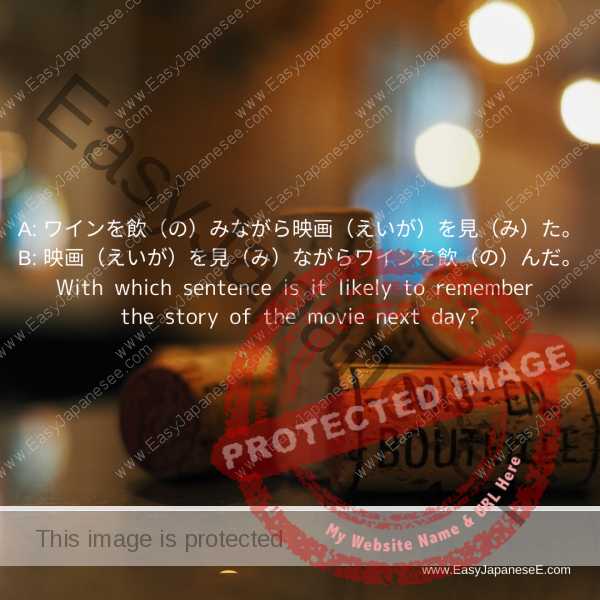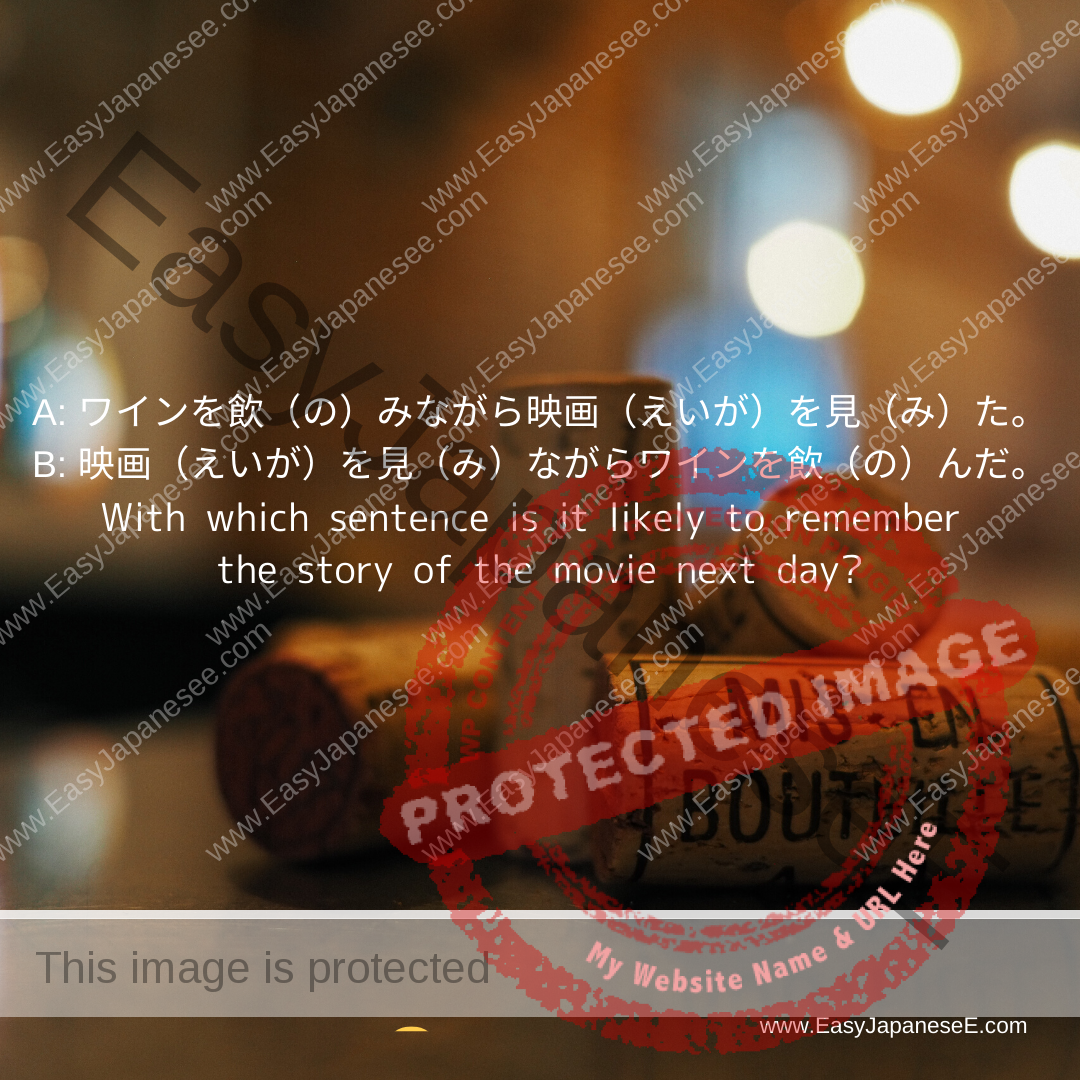
A: ワインを飲(の)みながら映画(えいが)を見(み)た。
B: 映画(えいが)を見(み)ながらワインを飲(の)んだ。
With which sentence is it likely to remember the story of the movie next day?
[verb stem]ながら… is a good expression to describe multitasking. It means “while ~, …”. There are 2 things you need to remember with this pattern:
1. The doer of the 2 or more actions must be the same person
母はせんたくしながら、りょうりをした。
My mother cooked while doing the laundry.母がせんたくを しているあいだに、(わたしは)りょうりをした。
While my mother was doing the laundry, I cooked.
If you are talking about 2 different people, you need to use あいだ or あいだに as in the second sentence. For the difference between あいだ and あいだに, read this post.
2. The last action in the sentence is the main action.
So, the answer to my question is A. In B, your main action is “to drink wine” so you may not remember any of the movie next day.
More examples:
父(ちち)はいつも音楽(おんがく)を聴(き)きながら、たばこを吸(す)う。
My father always smoke a cigarette while listening to music.テレビを見(み)ながら、勉強(べんきょう)してはいけません。
You must not study while watching TV.母(はは)は姉(あね)と電話(でんわ)で話(はな)しながら、料理(りょうり)をする。
My Mum cooks while talking to my sister on the phone.洗濯(せんたく)をしながら、洗(あら)い物(もの)をして、母(はは)はいつもいそがしい。
Mum does the dishes while doing the laundry. She is always busy.兄(あに)は働(はたら)きながら、大学(だいがく)を卒業(そつぎょう)した。
My older brother graduated from university while working.ちょっと前(まえ)まで、日本(にほん)では、歩(ある)きながら食(た)べるのは、よくないことでした。
Eating while walking was not a done thing in Japan until not that long ago.授業(じゅぎょう)を聞(き)きながら、ノートをとった。
I made notes while listening to the lesson.辞書(じしょ)を引(ひ)きながら、日本語(にほんご)で手紙(てがみ)を書(か)いた。
I wrote a letter in Japanese while using a dictionary.歩(ある)きながらスマホを使(つか)うのはやめましょう。
Let’s stop using a smartphone while walking.


One Reply to “~ながら…”